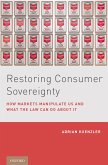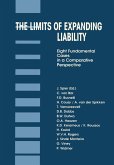Competition enforcement authorities use settlements as a tool to ensure compliance with antitrust law. Companies can make commitments to remedy breaches, ensuring that they avoid litigation and potential fines and reputational damage. The author of this highly original and innovative book shows that, rather than fines or arguing principles of competition law in litigation, antitrust settlements (namely U.S. consent decrees and EU commitment decisions) hold the key to globally effective enforcement, particularly in the digital and blockchain era. Antitrust law does not necessarily need to be abolished, but rather should be fully exploited as an economic regulation led by antitrust settlements. In supporting her thesis, the author examines such elements of competition enforcement as the following: drawbacks of allowing the courts to regulate markets; whether antitrust settlements sacrifice antitrust deterrence; how settlements rapidly and surgically regulate markets; comparative analysis between U.S. consent decrees and EU commitment decisions; economic analysis on the adoption of antitrust settlements in both the U.S. and EU markets from 2013 to 2018; fundamental role of antitrust settlements in regulating the current digital markets; and comprehensive description on how to use antitrust settlements to regulate the data industry. With its thorough guidance on U.S. consent decrees and EU commitment decisions from their functioning to their characteristics and procedureand its extensive treatment of the main antitrust remedies available and used in enforcing of antitrust law in both the U.S. and EUthe book provides both an economic and a legal analysis of the functioning and the scope of antitrust settlements. It assesses the influence of decisions on companies' behavior and agencies' practice, using economic analysis to show the procompetitive or anticompetitive effects of remedies, with special attention to digital markets. Because markets have become so dynamic and unpredictable that is difficult to preserve efficiency, the author says, there is a little room for laweconomic regulation is a better fit. This book is a springboard to further investigate how a simple antitrust enforcement tool, having turned competition law into an economic regulation policy, can drive our economy, leading both the antitrust and regulatory interventions in tackling today's market challenges.
Dieser Download kann aus rechtlichen Gründen nur mit Rechnungsadresse in A, B, BG, CY, CZ, D, DK, EW, E, FIN, F, GR, HR, H, IRL, I, LT, L, LR, M, NL, PL, P, R, S, SLO, SK ausgeliefert werden.









